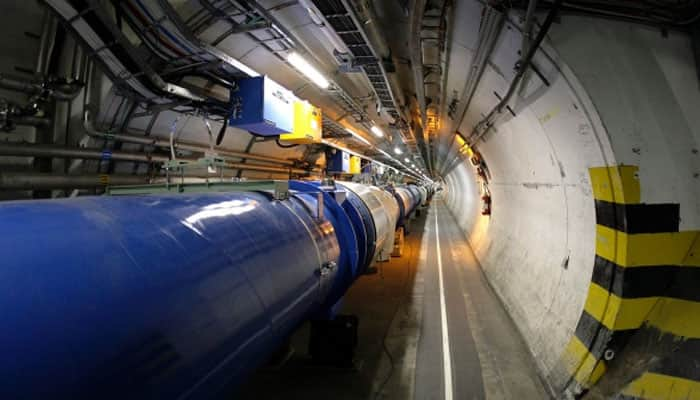New Delhi: The Indian Institute of Technology Madras (IIT Madras) has become the first IIT to be made a full member of the CMS experiment at CERN, the European Organisation for Nuclear Research.
With this achievement, IIT Madras will get several opportunities in a large number of related technologies initiated and applied at the Switzerland-based organisation.
According to a release issued by the institute, IIT Madras' admission as a full-member of CMS was made possible by a presentation made to the CMS (Compact Muon Solenoid) Collaboration Board by Prof Prafulla Kumar Behera of the Department of Physics.
In his presentation, Prof Behera emphasised IIT Madras' capabilities in experimental research, particularly in high-energy physics.
Apart from Behera, another faculty member, Prof James Libby, and two graduate students have come on board to work on the CMS experiment.
Although reputed institutions including TIFR, BARC and a few others have been working with CERN on the CMS experiment, IIT Madras is the only IIT which has been invited to join the CMS experiment as a full member, the release said.
Bhaskar Ramamurthi, Director of IIT Madras, sees this as a tremendous opportunity for IIT Madras not only in the area of Physics, but also in a large number of related technologies which are initiated and applied at CERN.
“We are excited by this development, and by the opportunities for direct participation in research in fundamental Physics, related technologies and developments in grid computing,” he said.
CERN is well-known for the discovery of the Higgs boson aka the 'god particle' in 2012.
CERN is not only an international laboratory for fundamental research in experimental high energy physics but also provides a platform for innovation in technology through international collaboration.
The two experiments that discovered Higgs boson are ATLAS (A Toroidal LHC Apparatus) and CMS (Compact Muon Solenoid).
CMS is a general-purpose detector at the Large Hadron Collider (LHC). It is designed to investigate a wide range of physics, including the search for the Higgs Boson, extra dimensions, and particles that could make up dark matter.
The World Wide Web (abbreviated as WWW or W3, commonly known as the Web) was also invented at CERN.
(With PTI inputs)
















